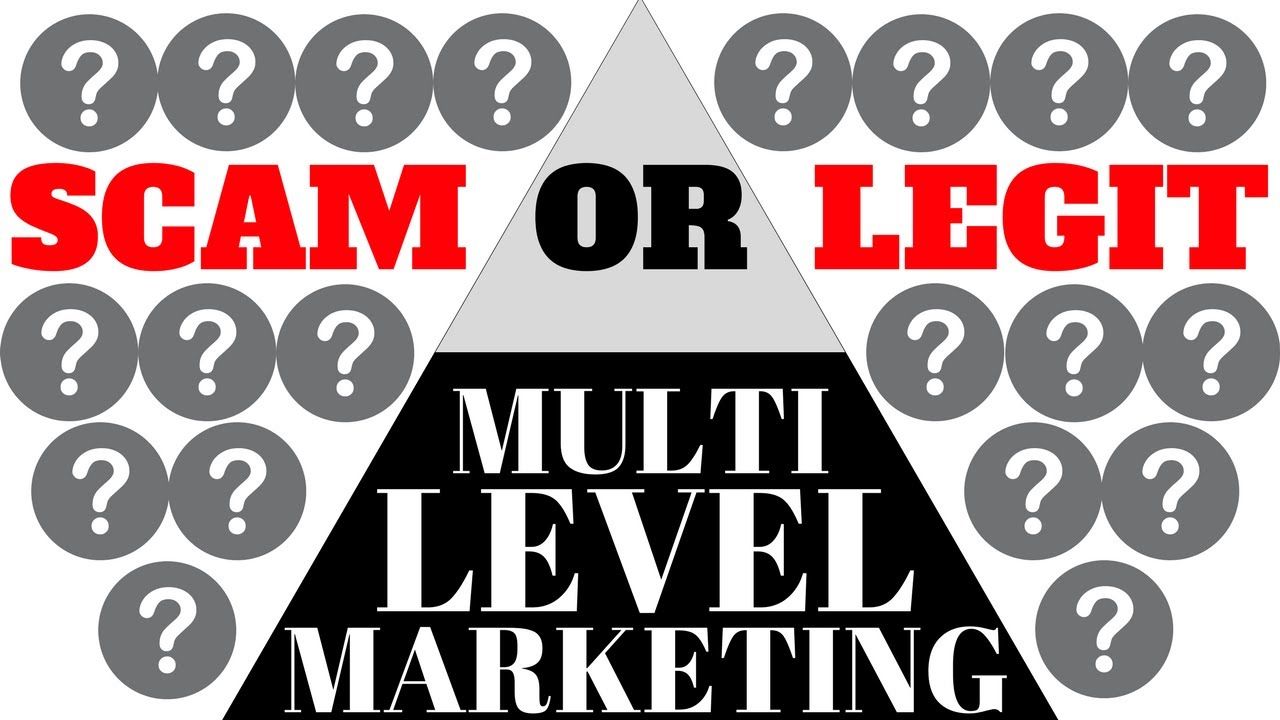Is Network Marketing A Scam?
As someone who’s delved into the world of network marketing, often referred to as multi-level marketing (MLM), I’ve witnessed firsthand the heated discussions surrounding its legitimacy and ethical standing. In essence, network marketing is a strategy where individuals like myself sell products or services and recruit others to do the same. We earn commissions from our sales as well as those made by our recruits. While I’ve seen many view it as a golden opportunity for entrepreneurship and personal income growth, there’s a significant number who criticize it, labeling it scam-like, especially when the emphasis shifts from product sales to primarily recruiting new members. The controversy, in my experience, is fueled by the varied experiences of participants – with success stories on one side and, unfortunately, tales of financial loss and disillusionment on the other. Whether network marketing is considered a scam often boils down to the specific MLM company’s structure and practices, alongside the expectations and experiences of its participants like me.

The History of Network Marketing
Network marketing, also known as multi-level marketing (MLM), has a rich history that dates back to the early 20th century, with its roots often traced to the 1940s. The concept began to take shape with the formation of California Vitamin Company in 1934, which later became Nutrilite in 1939. Nutrilite is widely recognized as the first company to adopt the network marketing business model, where salespeople earned not only from their direct sales but also from the sales made by the distributors they recruited.
The success of Nutrilite’s model paved the way for other companies to adopt similar strategies. In 1959, two of Nutrilite’s top distributors, Rich DeVos and Jay Van Andel, founded Amway, which would become one of the most successful network marketing companies globally. Amway expanded the concept by offering a wider range of products, further refining the MLM model where distributors could earn income through direct sales and by building a network of distributors beneath them.
Throughout the 1970s and 1980s, network marketing experienced significant growth, with numerous companies emerging and expanding internationally. This period also saw increasing scrutiny from regulatory bodies due to concerns over pyramid schemes, which are illegal operations that resemble MLM in structure but focus on recruitment over actual product sales.
The advent of the internet and social media in the late 20th and early 21st centuries transformed network marketing, making it easier for distributors to sell products and recruit new members. Companies like Herbalife, Nu Skin, and Tupperware capitalized on these new tools to reach a global audience, demonstrating the adaptability and enduring appeal of the network marketing model.
Despite ongoing debates regarding its legitimacy and ethical implications, network marketing has remained a significant and controversial component of the global economy. It has provided entrepreneurial opportunities to millions, while also facing criticism and legal challenges. The history of network marketing is a testament to its complexity, sitting at the intersection of innovation, entrepreneurship, and regulatory oversight.
An Overview of How Network Marketing Works
Over the years, I’ve come to understand its intricacies and how it fundamentally operates. At its core, network marketing is a business model that combines direct sales with a tiered commission structure. Here’s how it unfolds from my perspective:
- Direct Sales: My journey starts with becoming an independent distributor for a company whose products or services I’m passionate about. Unlike traditional retail, I sell these products directly to consumers, often through personal networks, social media, or face-to-face interactions. This direct sales aspect allows me to create a personalized shopping experience for my customers, offering them products that I truly believe in.
- Recruitment: Beyond selling, I also have the opportunity to expand my business by recruiting other distributors. This is where the multi-level aspect of network marketing comes into play. I mentor these new recruits, helping them to start their own sales efforts. My role doesn’t just stop at selling products; it extends to building and nurturing a team.
- Earning Commissions: My earnings in network marketing come from two main sources. First, I earn a profit from the products I sell directly, gold, silver, and collectable coins. Second, and perhaps more significantly, I earn commissions from the sales made by the distributors I’ve recruited. This tiered commission structure means that my income potential can grow significantly as my network expands.
- Personal Development and Team Building: Success in network marketing isn’t just about sales; it’s also about personal growth and team development. I invest time in training and supporting my team, fostering an environment where everyone can achieve their personal and financial goals.
This model has offered me not just a way to earn an income, but also a chance to develop entrepreneurial skills, build a network of motivated individuals, and contribute to others’ success. Network marketing, when approached ethically and with dedication, can be a rewarding venture.


Is Network Marketing Legit?
As someone deeply immersed in the world of network marketing, I’ve often encountered the pressing question: Is this business model legitimate? The legitimacy of network marketing is a topic I’ve explored from various angles, considering both legal standings and personal experiences within the industry.
Firstly, it’s important to acknowledge that network marketing operates within a legal framework, recognized and regulated by authorities in many countries. This business model is not inherently illegal; it becomes problematic only when it crosses over into pyramid scheme territory, where earnings are primarily based on recruiting new members rather than selling actual products or services. I’ve learned that reputable network marketing companies focus on product sales to outside customers, a key differentiator from pyramid schemes.
My journey in network marketing has shown me the importance of regulatory bodies, such as the Federal Trade Commission (FTC) in the United States. These organizations set guidelines that protect participants from exploitation, ensuring companies operate ethically and transparently. I’ve seen companies undergo scrutiny and, in some cases, legal action, which reinforces the need for ongoing vigilance and compliance with these regulations.
Moreover, the legitimacy of a network marketing opportunity can often be gauged by its compensation plan, product quality, and company transparency. Legitimate companies are upfront about the potential for earnings and the challenges involved. They invest in product development and provide comprehensive support to their distributors.
From my perspective, network marketing offers legitimate opportunities for entrepreneurship, personal development, and financial growth. However, it’s not without its challenges and controversies. The distinction between legitimate network marketing practices and fraudulent schemes is crucial for anyone considering this path.
The legitimacy of network marketing is not a black-and-white issue. It requires careful consideration of legal, ethical, and practical aspects. My experience has taught me the value of research, skepticism, and due diligence in navigating this complex industry. As with any venture, success in network marketing demands commitment, ethical practices, and a focus on genuine product value.
Common Criticisms and Concerns About Network Marketing
In my journey through the world of network marketing, I’ve encountered my fair share of criticisms and skepticism. These criticisms often echo the concerns of many who view the model with suspicion. Reflecting on these, I’ve grown to understand the most common critiques and the reasons behind them.
One of the primary criticisms I’ve faced is the comparison of network marketing to pyramid schemes. Many people struggle to differentiate between legitimate network marketing opportunities and illegal pyramid schemes, where earnings are mostly derived from recruiting new members rather than selling actual products. This confusion is something I’ve had to navigate and explain time and again, emphasizing the importance of product sales in legitimate operations.
Another significant concern is the high failure rate among participants. Critics often point out that a large majority of network marketers earn little to no income, or even lose money. This aspect of network marketing is hard to ignore, and it’s something I’ve witnessed firsthand. The promise of potential wealth can sometimes overshadow the reality of hard work, persistence, and the fact that success is not guaranteed.
The saturation of the market is another critique I’ve encountered. As more people join network marketing ventures, the competition intensifies, making it harder for everyone to find success. This has made me question the sustainability of the model in certain markets and products.
Lastly, the pressure to recruit family and friends can strain personal relationships, a criticism that hits close to home for many, including myself. The blend of personal and professional boundaries in network marketing is a delicate balance to maintain.
Confronting these criticisms has been a crucial part of my network marketing experience. It has taught me the importance of approaching this business model with a critical eye, acknowledging its flaws while also recognizing its potential benefits.


Ethical Considerations
Navigating the network marketing industry has been an enlightening journey, particularly when it comes to the complex terrain of ethics, both on an individual and company level. My experiences have shed light on the significance of maintaining high ethical standards and the impact it has on long-term success and personal integrity.
In the realm of network marketing, the ethical conduct of companies is scrutinized closely. I’ve observed that companies with a strong ethical foundation tend to prioritize transparency in their business operations, including clear communication about earnings potential and realistic portrayals of what new recruits can expect. These companies invest in quality products and services, ensuring value for both their distributors and customers. On the contrary, encountering companies that exaggerate income possibilities or downplay the effort required has been disheartening, highlighting the importance of diligence in distinguishing between ethical and misleading practices.
On a personal level, ethics in network marketing often revolves around the methods used to recruit new members and sell products. I’ve learned that ethical network marketers operate with honesty and integrity, focusing on building genuine relationships rather than viewing every social interaction as a sales opportunity. The pressure to recruit friends and family can lead to strained relationships if not approached with sensitivity and respect for personal boundaries.
Another ethical consideration is the representation of products. Ethical marketers ensure their product claims are accurate and substantiated, avoiding exaggerated benefits that could mislead consumers. This integrity not only builds trust but also cultivates a positive reputation in the long run.
Reflecting on my path, I’ve come to realize that individual and company ethics are deeply intertwined in network marketing. Companies set the tone for ethical behavior, but it’s up to individuals to uphold these standards in their daily operations. The challenges of navigating ethical dilemmas have taught me the value of transparency, honesty, and integrity. These principles have become my compass, guiding me towards ethical decisions that respect the well-being of all involved, fostering a sustainable and trustworthy business environment.
Choosing The Right Company
Convinced now that network marketing is not a scam?
Once I made that decision, choosing the right network marketing company was a pivotal decision in my journey within this industry, a choice that I’ve come to realize can significantly influence one’s success and satisfaction. In my exploration, I’ve discovered that there are thousands of network marketing companies worldwide, operating across a diverse range of industries. From health and wellness, beauty and personal care, to technology and financial services, the spectrum of industries represented is vast and varied, offering numerous opportunities to find a niche that aligns with one’s passions and values.
The importance of selecting the right company cannot be overstated. Initially, I was overwhelmed by the sheer number of options available—estimates suggest there are over 10,000 network marketing companies globally. This abundance means there’s something for everyone, but it also requires careful consideration to choose wisely. In my search, I prioritized companies with products or services that I truly believed in and could authentically endorse. This personal alignment has been crucial for my ability to sell genuinely and build a sustainable business.
Furthermore, the reputation and ethics of the company emerged as paramount factors in my decision-making process. I sought out companies with transparent business practices, fair compensation plans, and positive reviews from both customers and distributors. This research was instrumental in avoiding companies with questionable practices and ensuring my efforts would be invested in a reputable and supportive environment.
Equally, the support and training offered by the company became key criteria. Joining a company that provides comprehensive training programs, marketing tools, and a supportive community has made a significant difference in navigating the challenges of network marketing. It has allowed me to grow professionally and personally, equipping me with the skills needed to succeed.
In reflection, choosing the right network marketing company has been a journey of aligning my personal values with a company that offers a supportive, ethical, and growth-oriented environment. This alignment has been the cornerstone of my success and fulfillment in the industry.


Why I Chose 7K Metals
Embarking on this journey through the landscape of network marketing, I’ve traversed various paths, encountered myriad opportunities, and navigated the complexities of choosing a company that not only aligns with my values but also offers a tangible and rewarding venture. It’s with great enthusiasm and a wealth of experience that I extend an invitation to explore an opportunity with 7K Metals—a company that has redefined my understanding of success in the network marketing domain.
7K Metals isn’t just another network marketing company; it’s a community where passion for precious metals, including gold, silver, and collectible coins, meets entrepreneurial spirit. This unique blend offers a venture that is not only financially rewarding but also deeply enriching on a personal level. With 7K Metals, you’re not merely selling products; you’re offering a gateway to financial literacy, investment, and the timeless value of precious metals.
What sets 7K Metals apart in the vast sea of network marketing opportunities? It’s the genuine value and appeal of our products—assets that have held their worth over millennia, offering not just beauty but a hedge against inflation and economic uncertainty. As a member of our community, you’ll be part of a mission to make owning gold and silver accessible to as many people as possible, empowering them to secure their financial future.
Our commitment to your success is reflected in our comprehensive support system, designed to equip you with the knowledge, tools, and confidence to thrive. From detailed training programs to an inclusive community atmosphere, we’re here to guide you every step of the way.
I invite you to join us at 7K Metals. Whether you’re seeking a path to financial independence, looking to diversify your investment portfolio, or simply passionate about precious metals, 7K Metals offers a unique and compelling opportunity. Embrace the chance to create a legacy of wealth and wisdom for yourself and those you care about.
Let’s embark on this journey together, exploring the rich potential that 7K Metals and the world of precious metals have to offer. Your path to success in network marketing, underpinned by the enduring value of gold and silver, starts here. Join us, and let’s unlock the treasure chest of opportunities together.
I will text you 6 informative videos explaining in greater detail about this amazing opportunity!
Enter your 10-digit cell phone number.
No Dashes, hyphens, or parenthesis.



